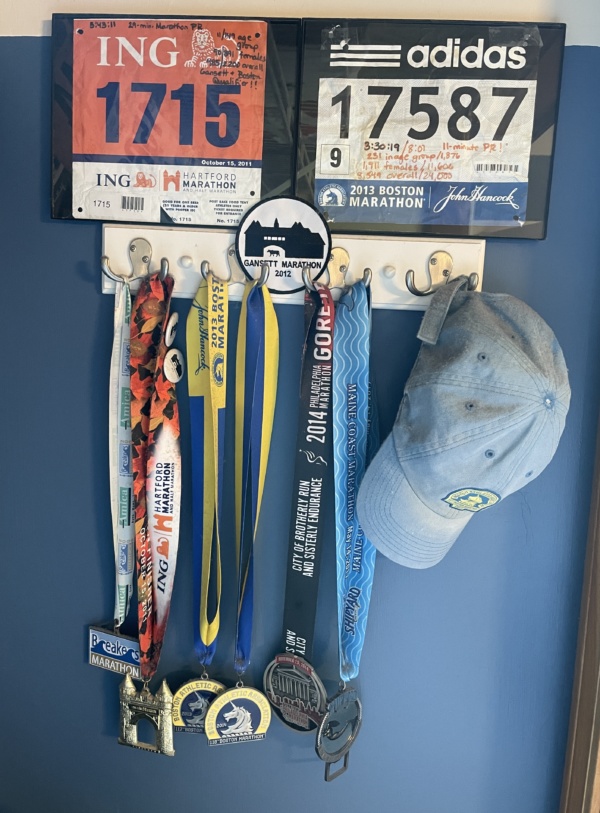
Michelle San Antonio’s marathon memorabilia.
Before I started running, I was one of those people who might have asked, “So how long is that marathon?” And the idea of covering that distance on foot was unfathomable. Then I started running, and ran a 5-mile race and some 5Ks, and before I knew it, the marathon was beckoning. It still seemed unfathomable, but having experienced the exhilaration of crossing the finish line of shorter races, I could only imagine what a marathon finish line would feel like. I wanted to stop imagining and experience it.
Fast forward several years, and I had five marathons under my belt, including two Bostons. I was no longer a runner—I was a marathoner, and proud of it. I loved how people shook their heads in disbelief when I talked about my 20-mile training runs, and a 13-miler seemed like an easy day. I earned my sixth marathon medal in Philly in 2014, missing a PR by three minutes, but vowing to forge ahead and keep chasing the elusive sub-3:30 I was aiming for.
Then, through a combination of a series of injuries and the inevitable aging of my limbs, joints, and muscles, my enthusiasm for PR-chasing began to wane.
I had qualified for Boston 2016, but suffered a debilitating injury three weeks before race day, and Boston 2016 was a DNS. I hoped to redeem myself at a 2017 marathon, which I ran in a Nor’Easter and during which I completely fell apart, mentally and physically.
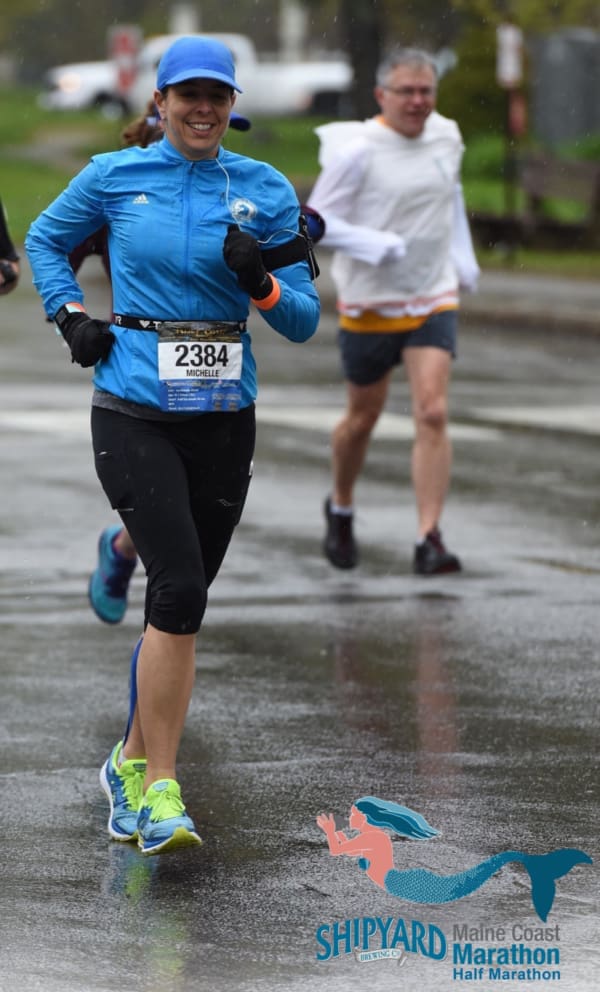
Michelle bravely smiles despite the conditions.
I hated the idea of my last marathon being such a debacle and tried to rally three more times to run a redemption race, but each time I found myself bailing several weeks into the training. One issue is my feet, which are plagued by bunions that are cooperative if I stick to running 10 miles or less, but complain loudly at distances longer than that.
But truthfully, the bigger issue is that marathons just aren’t that enticing to me anymore. I love the idea of them in theory, but the reality—months of grueling long runs, extra attention to recovery, fueling and hydrating, the constant presence of race day looming large in the future—is decidedly unappealing. As that 2017 debacle gets farther away in the rearview mirror, I feel less compelled to try again and rewrite the ending.
What it really comes down to is that I’ve lost my why. I’ve proven my fortitude, seven times over. And at almost 51 years old, I feel like I no longer have to prove anything to anyone, including myself. While a little part of me still wants to take that right on Hereford and left on Boylston one more time, I don’t want it enough to put my body (and my heart and soul) through the training required to get there. One of the most important things I learned from running seven marathons is that if you can’t figure out why you’re taking on the challenge, it’s exponentially more difficult to complete it.
So, after this on-and-off dance we’ve been doing the past few years, I am now 99.99% certain that the marathon and I are breaking up for good.
My body, head, and heart are so much happier running shorter distances. Last year I ran 5Ks, 10Ks, a 10-miler, and a half, and walked away with age group wins at almost every race. Walked away is the key word. I did not shuffle, or limp, and I most definitely did not have trouble walking down stairs because my quads were destroyed. Even my aging joints bounce right back from these shorter races. It’s a whole different world.
I will be the first to tell you there’s nothing quite like crossing a marathon finish line. I remember every one of mine in vivid detail, and they all make me smile—even the ugly ones. But I’ll also be the first to tell you that crossing any finish line is spectacular, and the finish lines that feel the best are the ones that are meaningful to you.


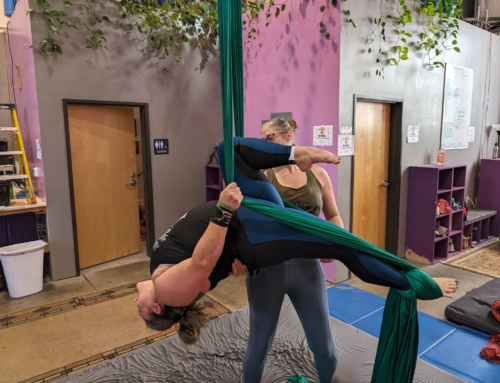
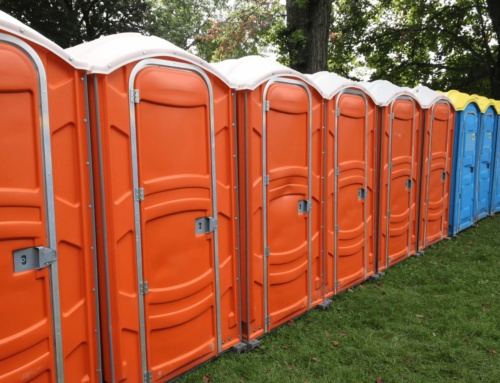
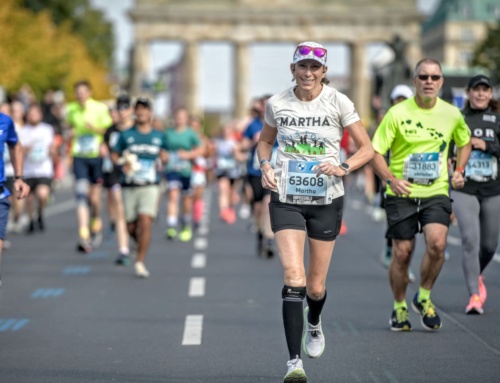
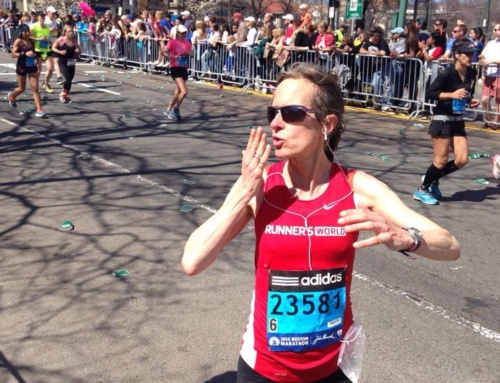
Loved this and I agree Michelle. I am enjoying doing shorter races and triathlons and not lured back to long training for marathons anymore. I’m not ruling out marathon 7 for me but I may be breaking up with them too.
I always have in the back of my mind – “never say never,” but it’s hard to imagine going there again. Short races are fun!!
This is so incredibly validating for me to read, Michelle! Thank you!! I have run 5 marathons and would love to have the peace and assurance YOU have, that you’ve proven yourself – to others, and to yourself – and don’t feel the need to do that anymore. After a disappointing spring marathon but a fantastic 10 miler two weeks later, where I loved every minute of the race, ran fast, and felt fantastic afterward, I am debating whether or not marathons and I are…. almost over. I qualified in the fall for Boston 2023, and perhaps my swan song will be right on Hereford, left on Boylston….
So glad it resonated! It’s good to feel at peace – you’ll get there. And when you do, you’ll just know. It’s definitely a decision that comes from the heart.
Amen. After training and racing nonstop for 3 years, I decided that for my health and well-being that it was time to stop the constant training and let my body heal. I am running my last marathon, for a while at least, tomorrow. I am looking forward to the much needed down time. I am glad to hear others feel the same way, it doesn’t mean you aren’t a runner… it means you are listening to your body and doing what is right for you.
Definitely – no less a runner because you aren’t tackling crazy long distances. I’m so much happier just doing what makes me happy, and as of now, that’s shorter distances. Good luck in your last marathon!!!
Thank you. I needed to read this. I’ve run 8 marathons, including Boston to Big Sur twice…but I just feel like I’m done. Sunday 4/24 I will be a DNS at BSIM, I fell off the training train. Injury, motivation, schedules….it’s all too much. I feel defeated but remind myself I have nothing to prove. Breaking up with the marathon leaves me feeling like I’ve lost a part of myself.
❤️ this. This is the struggle I’m going through now. Michelle sums it all up perfectly. I’m still coming to grips with it but right now my goal has to be to get back to running injury free, and not the distance.
It’s not easy – I struggled through three marathon training attempts, grappling with ALL the emotions. When you know, you know. It’s such a journey, and part of the beauty of it is working through those tough spots. xoxoxoxoxo
We are the same person, right down to time! Totally relate
Thank you for this! I have been debating about this for months. My last marathon was in December 2021 and didn’t end like I wanted it to. I was on pace to do 5 hours which would have been a 30 minute PR, but a huge group of us had to stop at mile 17.5 because the cones stopped and no one knew where to go. It took about 10 minutes to figure it out and I never did get my groove back. It was very difficult to sustain my intervals. I keep thinking I want to try it again and not leave that disappointment as my last, but the training is terrible.
Thank you for sharing this, Michelle. Your story resonates deeply with me. Having run 9 marathons, including two Bostons and two more recent marathons that left me feeling more disappointed than anything else, I’ve wondered if my beloved 26.2 distance is going to be a definite thing of the past. I haven’t given up on the idea of training for another one (I keep thinking I should really go for #10, it’s such a nice, pretty milestone number), but I find myself gravitating to other challenges, like the half Ironman, 10Ks and half marathons…and even, maybe, an ultra someday — friends who run longer than 26.2 swear it’s an entirely different mindset and incredibly rewarding. Plus, trails, which I love. So, we’ll see. It’s just a strange feeling in many ways, no longer wanting something that at one time was so important to you. We change, we evolve. It’s such a ride. Thank you for your beautiful words!
Amen! I’ve done over 20 half’ marathons & have no desire to do a full. Sometimes the fact that I don’t even consider running a full makes me question my legitimacy as a runner (crazy, I know). I’m also 51. Thanks for keeping it real. I’m gonna keep doing what makes me happy & fulfilled.
What a great and relatable post Michelle. I past that mark on the marathon years ago but am now facing it at the half marathon distance. I am ready to do what I am considering to be my last half in two weeks. But at 61 and a life long runner, it is time to cut back. Too many injuries in the last decade and tired of hurting all the time. I want to love running again and I’m almost there. I think it is a passage we all face at some point and it can be hard to reconcile as we do know how it feels to achieve that finish line. Cheers to you Michelle and keep on keepin’ on.
Definitely feel this! Also similar, I “want” to want to do it, but the fire just isn’t there 🤷♀️🙂…on the flip side, I have a lot more free time! Haha! Great piece 💜
Thank you for writing this, Michelle! I have loved my marathons and have enjoyed those same headshakes from non-runners. Babies, broken bones, injuries and life derailed marathon training but not the dream and I continued to run and race shorter distances. I always thought I would have another marathon shot “later.” At 52 I had hip replacement and now a year later, I need the other hip done. Hope surged in me with the 125 Boston virtual event (I ran the 100th) so I signed up! Despite emailing them and reading all the fine print of whether an elliptical would be allowed, trying to train on the roads and my body saying a hard No, I tearfully and joyfully completed my marathon on an elliptical on October 8, 2021. With how much I respect Boston, I just could not put in a false time so I was honest and submitted what I did. Unfortunately, Boston disqualified me. I was devastated. Absolutely devastated. I swore that after my next hip replacement I would train and redeem myself at a future Boston. But after reading this…maybe I won’t, and maybe that’ll be okay. Maybe I shouldn’t need Boston’s approval to say I completed that marathon and that I’m still a runner – just one in a different stage. Maybe I can be happy with being able to run at all after I’ve healed from the next surgery. Thank you for writing this and helping me process this grieving of my running life and looking to joy on the other side.
Thanks for the great story. My son and I ran Maine Coast in 2017 as well and we vividly recall the start with all the rain themed tunes playing and it was POURING! At mile eight our family met us with dry shirts and when we finally finished (he had the extra distance, I did not!) we could both wring sea foam from our clothing. He has since qualified for Boston but I have not done another marathon since, but we are looking at Austin 2023 as a family race! Never say never, but six years between marathons is a nice break!
This resonated with me. I’m very much in a similar place. I’m 49, and it takes more work to keep my body injury-free and feeling good. Over the past 2 years with no or few races, I realized I didn’t care anymore about time or PRs. If I run a race, it means more to me to do it with friends (and get brunch after!) than it does to get a good time. My priorities now are to keep moving and feel good for as long as I can.
[…] written in this space recently about how racing and competing is no longer the driving force to my running, and how I’ve come to embrace—and enjoy—this more laid-back approach. My life is no longer […]